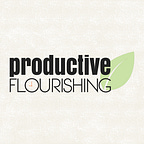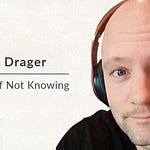Today’s jam is all about stepping out of your comfort zone: why it’s challenging, how we avoid it, and how people do it successfully. Our guest, Andy Molinsky, will also share some of the surprising revelations of his research findings. Andy is the author of the books Reach and Global Dexterity, and is a professor at Brandeis University International Business School.
Key Takeaways:
[2:30] - Andy became interested in the topic of getting out of your comfort zone after he wrote Global Dexterity, and realized people were applying the information about acting outside of their cultural comfort zone to stepping outside of their comfort zone, period. He had been doing academic research on the topic previously as well, and it’s been something he’s struggled with personally.
[4:12] - Charlie and Andy discuss Andy’s educational background, and how he went from organizational behavior to focusing more on personal behavior. Andy also talks about his academic writing versus his writing for popular audiences, and how that was a discovery about his own comfort zone.
[12:30] - Some of the psychological challenges to stepping outside of your comfort zone are: authenticity, likeability, competence, resentment, and morality. There’s a wide range of context and situations where people encounter these pain points. Andy talks briefly about what each looks like.
[17:00] - Moral pluralism is when different moral claims and responsibilities happen in a situation at the same time. Charlie talks about how this can come into play with each psychological challenge.
[21:45] - Resentment can present itself in many different ways. Andy talks about being an employee feeling resentful that they have to step out of their comfort zone to do something that they feel they shouldn’t have to do in the first place. This can also happen with entry-level workers; often times there is an awareness that the course they’re on is necessary, but they can still be resentful that they aren’t able to do some other project or task.
[25:03] - We’re very good at avoiding things, either consciously or unconsciously. There’s a bit of relief when we avoid doing something, but at the same time, putting it off until a later time is just going to make it harder to do.
[28:06] - Some other avoidance strategies are rationalization, and substituting. Usually when substituting, it would result in an imperfect substitution where you opt for a different method rather than what would really be best for you to do.
[32:38] - One important thing to remember is that each person handles challenges better at different points of the day. First things first doesn’t necessarily mean sequence; it can mean your first and most primal energy would be where you focus on the important tasks you need to complete. It’s not necessarily avoidance if you save it for a time you know you will be productive.
[35:07] - In his research, Andy found three key things that help people get out of their comfort zones: conviction, customization, and clarity. The trio of all three seemed to increase the odds of people willing to take a leap. Conviction is finding your purpose, and understanding your why.
[37:00] - Customization is the simple idea that there is no one-size-fits-all for anything. In any situation outside your comfort zone, you can tweak or customize to make the situation more comfortable for you.
[41:50] - We have more power than we think, and when we adopt this thought pattern, we can leverage our creativity and experimentation to make situations more comfortable for us when we’re stepping outside our comfort zones. Creating small wins for ourselves helps put us in the position to succeed, and when we do mess up, it’s good to see those instances as learning opportunities.
[46:08] - It is really critical to take a leap. Once you do take a leap, it’s important because you can learn something about yourself. You may discover that something isn’t as hard as you thought it was, or that you’re better at it than you thought you might be. When you have this experience, you may end up increasing the odds that you will try again, and build confidence and mastery.
[48:48] - Andy’s challenge for listeners: Take a piece of paper and draw three circles. One circle is your comfort zone, one is your stretch zone, and the other is your terror zone. Think of 3 to 5 tasks or situations in your life that can go in each of the circles. Focus on your stretch zone and see which task or situation could be something you would really like to dedicate some effort to working on.
Mentioned in This Episode:












